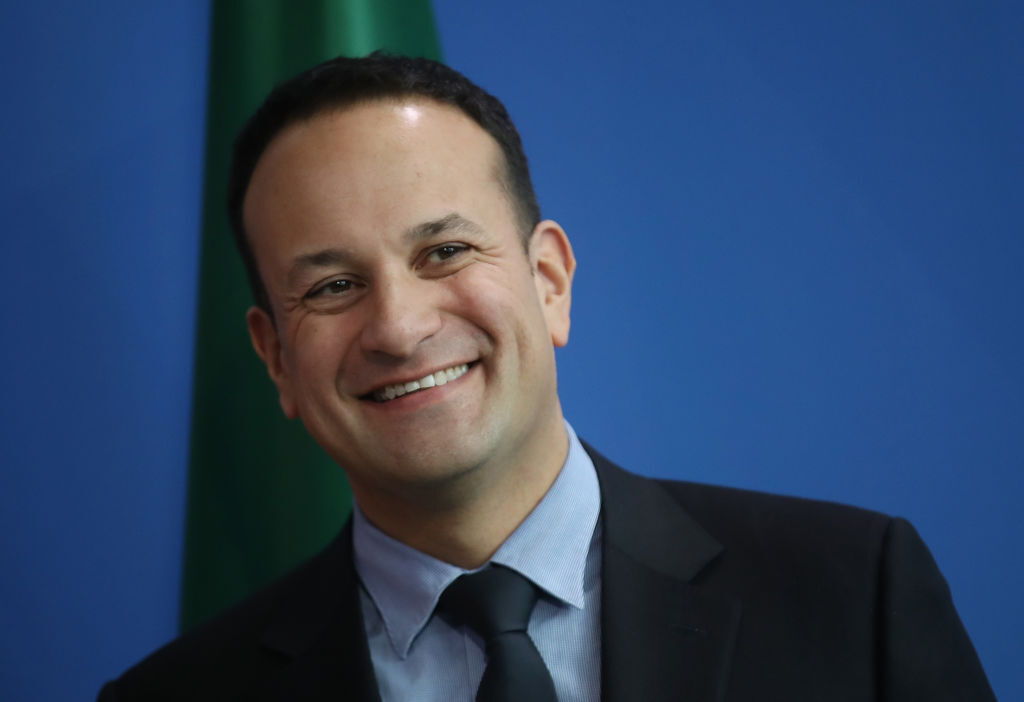One of the world’s most decisive laws outlawing anti-LGBTQ conversation therapy may soon be on its way to passage in Ireland.
Known as the Prohibition of Conversion Therapies Bill 2018, the legislation would fine or imprison licensed professionals, religious counselors, and private individuals who offer the discredited and widely condemned practice. If caught violating the statute, conversion therapists could face up to six months in jail or a penalty of around 5,000 Euros (or $6,000 in U.S. dollars).
Punishment is even harsher for counselors who transport individuals outside of the country to perform reparative treatmentswhich can take the form of shocl therapy or aversion techniques (e.g., snapping a rubber band on one’s wrist). They could spend up to a year in prison or be fined more than $12,000.
Sinn Féin Senator Fintan Warfield, who sponsored the legislation, told colleagues the proposal represents the “most comprehensive prohibition of conversion therapies in the world.”
“The bill not only bans the deceptive and discredited practice of LGBTQ conversion therapy, but it sends a message from this State that we consider sexual orientation, gender identity and gender expression to be inherent to a person and as such cannot be changed or converted,” said Warfield, who serves as the party’s spokesperson for the arts, youth affairs, and LGBTQ rights.
The legislation has, thus far, been widely championed in the Emerald Islepassing through its second stage in the Seanad (or the upper house of the Irish legislature) on Wednesday.
Openly gay Senator David Norris compared conversion therapy to “female genital mutilation.”
“It has absolutely no credibility whatever,” the lawmaker argued during debate. “On the religious side, the intention is to inflict feelings of shamefulness and sinfulness in the people. How crippling this is for vulnerable young people. How crushing the effect on young people to be given the impression that they are sinful, shameful and disgusting.”
“It is a savage attack on somebody, whether a man or a woman,” Norris continued.
Senator Ivana Bacik noted the bill boasted “unanimous support” among Seanad lawmakers. She said its embrace sends an “important symbolic message as to the type of society we wish to live in, quite apart from the practical impact.”
If passed, Ireland would be just the second country in Europe to ban conversion therapy and the third in the entire world.
Just two other nations have banning orientation change efforts at the nationwide level: Ecuador and Malta. Although Brazil outlawed conversion therapy in 1999, a federal judge sparked international outcry by overturning that nearly 20-year-old prohibition last September.
But there are signs the rest of the continent is catching up to Irish lawmakers in its condemnation of gay “cure” treatments. The European Parliament voted in March to censure the anti-LGBTQ practice, which has been likened by the United Nations to torture. Although the body doesn’t have the ability to pass legislation, it called on member countries to take immediate action outlawing conversion therapy.
As the bill continues to move forward in Ireland’s own Parliament (known as Oireachtas), its federal government has signaled support for the legislation.
Although openly gay Prime Minister Leo Varadkar has not sounded off on the conversion therapy ban, Minister of State at the Department of Health Catherine Byrne claimed government leaders “fully appreciate the reasons this bill was brought forward” and “will not oppose this bill.”
Byrne said the legislation, which will receive its next hearing on May 8, would be subject to amendment prior to passage, however. She alleged the proposal is “not clear enough in its language.”
Should the bill become law, it would represent just the latest sign of progress for Ireland’s LGBTQ community, which saw Varadkar (one of the world’s few openly gay heads of state) take office last year. In 2015, the Emerald Isle became the first country to legalize same-sex marriage through a public vote. Marriage equality passed by a 24-point margin.
Photo via Sean Gallup/Getty Images
Don't forget to share:
Help make sure LGBTQ+ stories are being told...
We can't rely on mainstream media to tell our stories. That's why we don't lock our articles behind a paywall. Will you support our mission with a contribution today?
Cancel anytime · Proudly LGBTQ+ owned and operated
Read More in Impact
The Latest on INTO
Subscribe to get a twice-weekly dose of queer news, updates, and insights from the INTO team.
in Your Inbox













